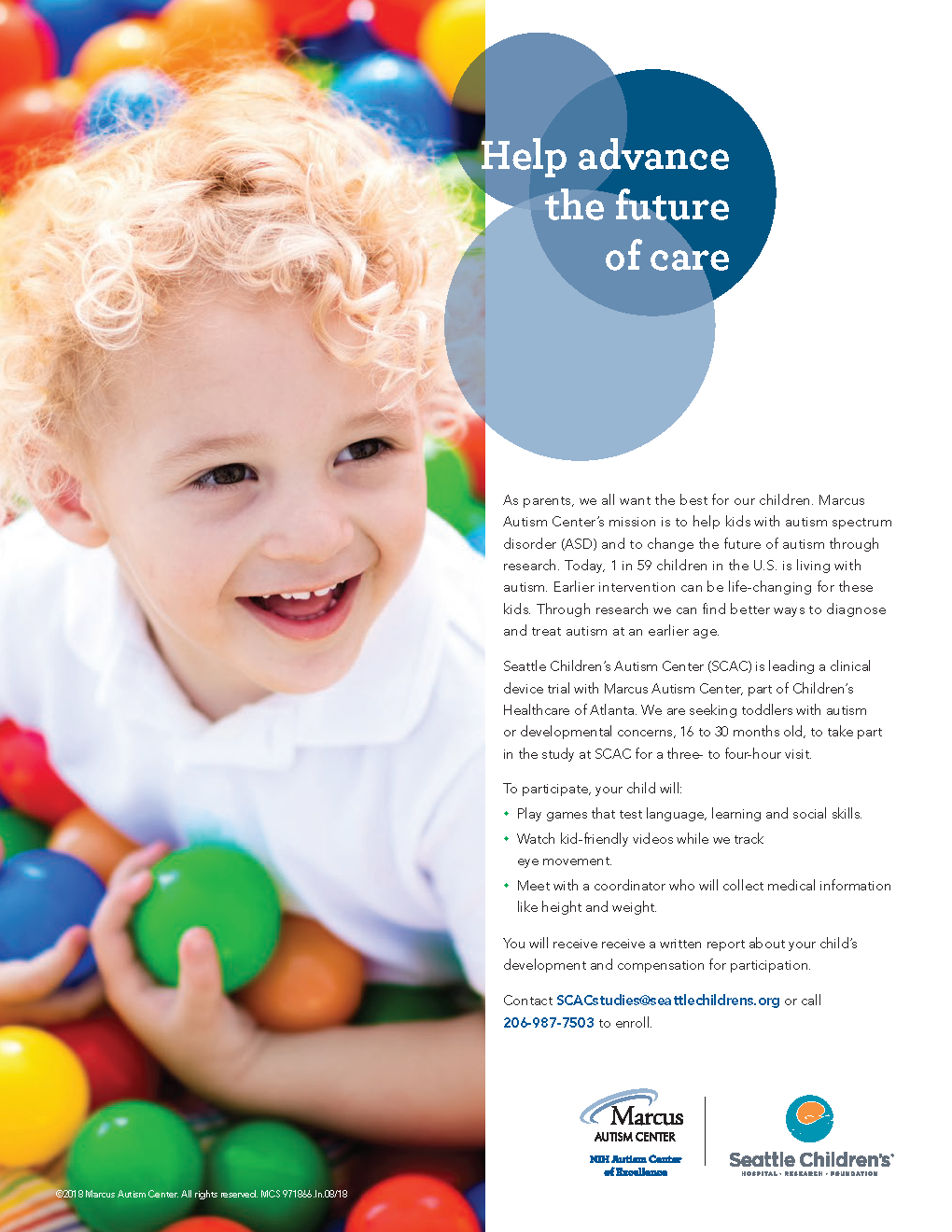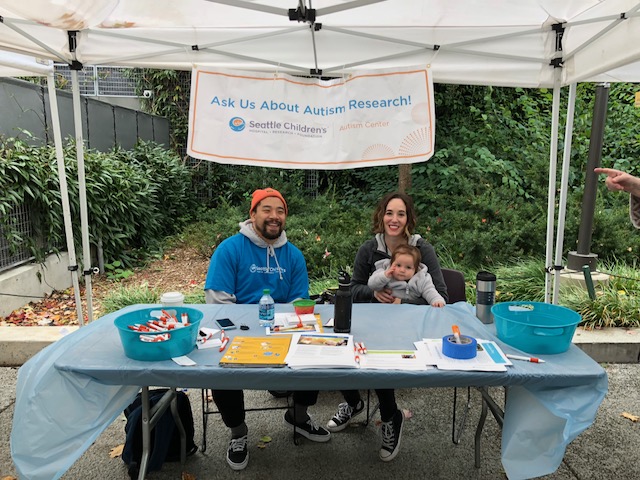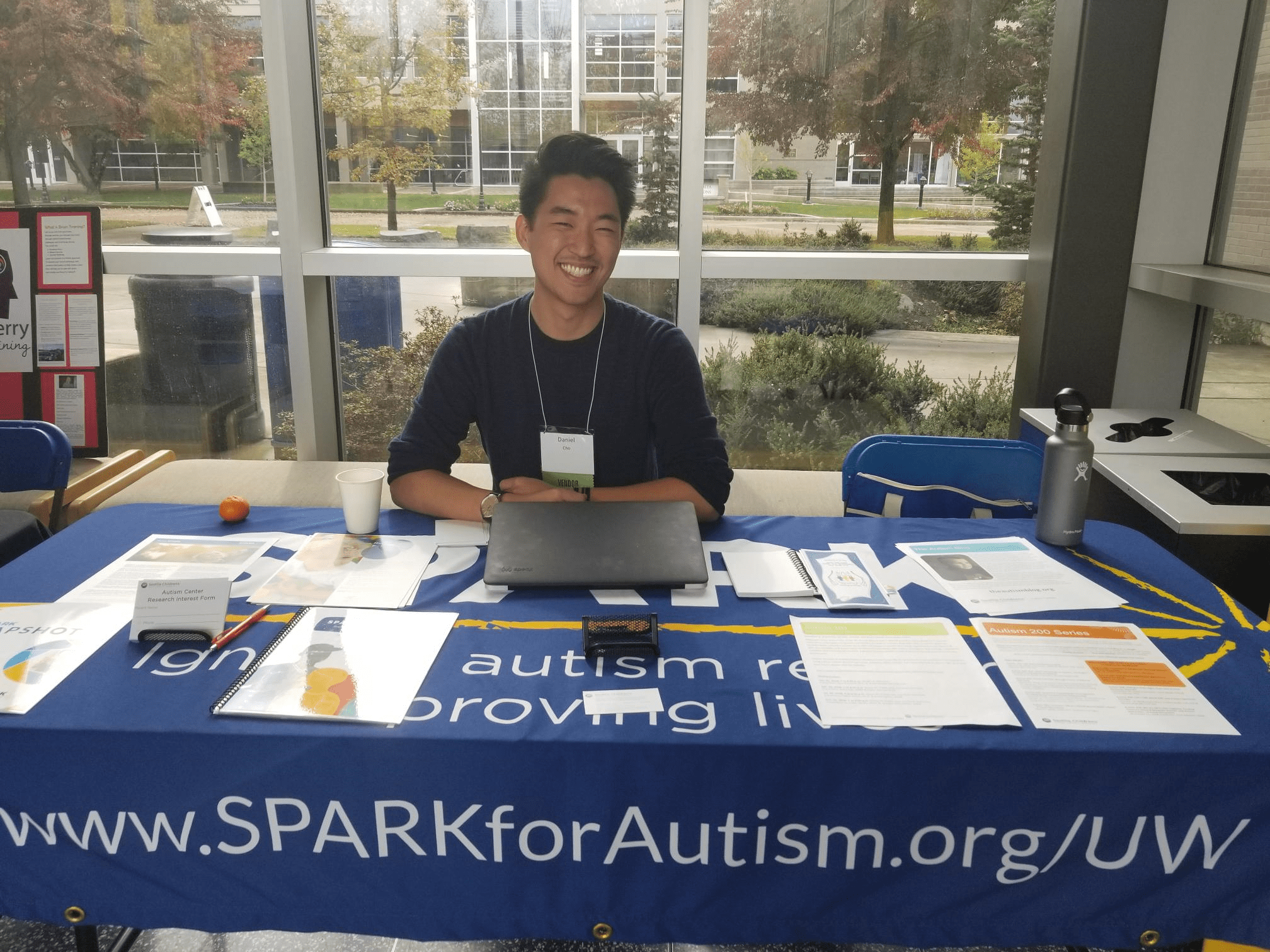Bernier Lab spent a great, productive day at the SW Autism Conference in Chehalis, WA. We shared information about current research studies at the University of Washington and Seattle Children’s Autism Center and met with families and providers about services. It was great to be a part of this conference! A special thank you to Daniel Cho for representing our research lab and institutions!6
Why is Raphe Bernier excited about SPARK?
Raphe Bernier discusses his research and why he’s excited about SPARK!
The goal of the SPARK project (www.SPARKforAutism.org/UW) is to collect genetic information on 50,000 individuals across the country with ASD and their families. Anyone with a diagnosis of autism can participate! Participation includes online registration, consenting to be contacted about future research studies, and the delivery of a saliva sample. These samples will be analyzed for ASD-related genetic differences. Families may choose to have their genetic testing results sent to a medical provider of their choice, should a genetic difference related to ASD be found. If you are interested, please contact Theo Ho, the study coordinator, by email (theodore.ho@seattlechildrens.org) or by phone (207-987-7917).
New investigational device research study at SCAC for Toddlers
Seattle Children’s Autism Center is enrolling children ages 16 to 30 months in a new clinical trial that may lead to the development of new methods of diagnosing autism spectrum disorder (ASD) in toddlers.
Marcus Autism Center, part of Children’s Healthcare of Atlanta, and Seattle Children’s Autism Center are working together to find better ways to diagnose and treat autism at an earlier age. The investigational device measures how a child attends to social interactions and these measures are used to detect autism. For a child, it’s just like watching television, but for healthcare professionals, it’s an opportunity to diagnose autism in a 30 minute session.
Whether or not a family has concerns about autism, they can play a role in advancing autism research and helping other kids.
Contact SCACstudies@seattlechildrens.org or call 206-987-7503 to enroll.
 MCS_971863_DeviceClinicalTrialTDPoster_Seattle_2018 MCS_971864_DeviceClinicalTrialASD Poster_Seattle_2018
MCS_971863_DeviceClinicalTrialTDPoster_Seattle_2018 MCS_971864_DeviceClinicalTrialASD Poster_Seattle_2018
Auditory Perception and Implicit language learning publication!
The Bernier Lab’s newest publication focuses on early auditory perception and receptive language in individuals with Autism Spectrum Disorder. We used a speech learning task along with electroencephalogram (EEG) recording to learn more about how individuals with autism process speech sounds in the brain. This study showed us that while neurotypical kids show a decreased response only in the left hemisphere as words become more familiar, kids with autism show a decreased response across both hemisphere as they learn words. This effect was directly related to the autistic kids’ actual receptive language vocabulary. In other words, kids with autism who had better receptive language showed more decreased responses (in both hemispheres) as the new speech became more familiar.
UW MOSSAIC
Autism Speaks Walk 2018
 Members for our team at the Seattle Children’s Autism Center and the University of Washington’s Bernier Lab showed up to support the 2018 Autism Speaks Walk at the Seattle Center and share information about the SFARI SPARK study! It was a great event, with a little sun and rain and lots of great contact with families. Thank you everyone for helping out and coming to say hi, even baby Chloe showed up to help!
Members for our team at the Seattle Children’s Autism Center and the University of Washington’s Bernier Lab showed up to support the 2018 Autism Speaks Walk at the Seattle Center and share information about the SFARI SPARK study! It was a great event, with a little sun and rain and lots of great contact with families. Thank you everyone for helping out and coming to say hi, even baby Chloe showed up to help!

